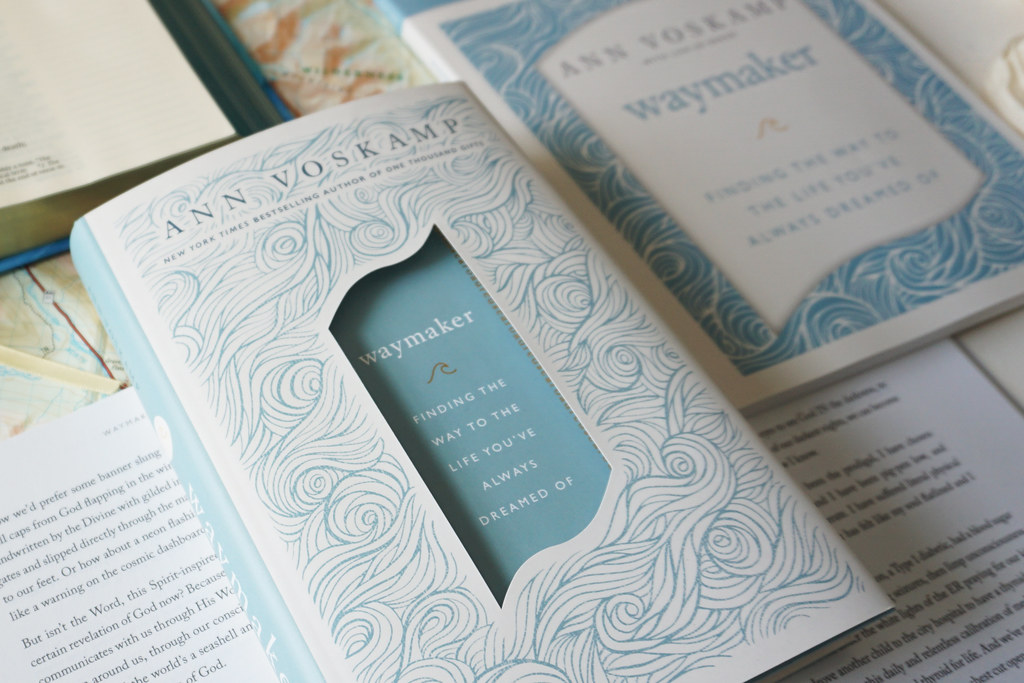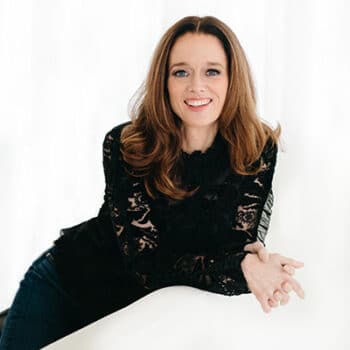I keep asking to myself: “What happens when you’ve kinda reached your limit? When you’re kinda at the edge of things?”
You know, when you’re standing there with your promising calendar and brave to-do lists and begging prayer journal. When you’ve got your dog-earred how-to books and your determined jaw and scuffed up knees and weary shoulders. When you know exactly too well what it’s like to live at the edge of hope, at the very brink of dreams, at the cliff of prayers.
I know it in my bones, what is like to come to the end of yourself, at the end of the world as you know it, and stand there on the last inch of land, and witness the surrendered way of waves, and long to go deeper, long to go all the way straight through.
Straight through with the straight-up impossible with this one child.
Straight through the storm of one exhausting, tumultuous relationship.
Straight through and out of what you’d do just about about anything to find any exodus out of.
And what I keep finding right there, in the surging surf of my life that keeps slapping up at my feet, is this waking to ways way beyond your depth.








There’s a story I return to often that the Jewish Midrash tells.
That there was a guy named Nahshon ben Aminadab, who was a slave among a people of slaves bound to hopelessness in Egypt.
Turns out Nahshon had escaped Egypt with his people with next to nothing in hand, but gripping to God for all he was worth, only to turn and see the red dust clouds of Pharaoh’s chariots storming across the desert floor — and the expanse of on endless sea crashing right there at his feet.
When I am up against all the things, I think of how some scholars say that Nahshon and the Israelites actually may have outnumbered the Egyptians 10,000 to 1. Sometimes when I feel overtaken by all the things, I need to take another look, because fear is the con artist that stretches things, the clever magician that always dupes, and the Israelites see the approaching hundreds of Egyptians as more like an entire horizon erupting into a horror.
Nahshon could feel it under him, the ground quaking with the rumble of the coming Egyptian chariots. And yet, Nahshon’s heart pounded braver and it’s true and you know it too:
Your knees may quake, but not your faith.
I breathe easier when I linger a moment with it, how the Jewish Midrash says that Nahshon, his heart steady, surrendered, deeply stilled in God, trusting — he rejected the notion of drowning in fear, he rejected the inaction of outrage, he rejected the paralysis or bitterness of feeling abandoned — and he not only believed it, he chose to be living it.
Instead of freezing, instead of fleeing — he stepped forward toward the Red Sea. The man walked toward what was in the way.
“The only way forward is to step into your sea — because you’ll drown in despair if you don’t follow Hope Himself forward.“
Put one foot in front of the other — and walk toward the impossible water. Drench yourself in Hope.
There are days that I actually let it be a refrain in my head to quiet all kinds of lurking fears: Only Forward. Only faith. Only fervent hope that refuses to shrink back.
The only way forward is to step into your sea — because you’ll drown in despair if you don’t follow Hope Himself forward.
The Midrash says that the man Nahshon, who turns out was actually the brother-in-law of Aaron, he walks straight into slamming waves up to his waist.
I’m discovering, the man’s not wrong: You only find a way through waves — when your faith isn’t as fickle as waves.
It’s only a leap of faith when you feel how the water is actually very deep.
The Midrash says cold water of the Red Sea kept rising up Nahshon’s neck.
I can feel it too, every time I keep taking the next step forward into the impossible:
Steady, steady.
Comfort your doubts with courage in Christ.
The Midrash says waves lapped up to Nahshon’s chin.
I’ve known it too on some pretty slogging hard days:
Waves can rise right up over lips sealed with a kiss of unwavering hope.
“When you’re hope-formed, you see that your fears are formless, and void, and the Spirit of God hovers over your soul with a hope that makes you brave.“
I am deeply in this process these days: Abandon yourself to the One who never abandons. Be hope-formed, not fear-formed.
And when you’re hope-formed, you see that your fears are formless, and void, and the Spirit of God hovers over your soul with a hope that makes you brave. And that makes you walk toward waves.
“And the LORD said to Moses, “Why do you cry out to me? Speak to the Israelites, that they journey onward.” (Exodus 14:15)
Nahshon heard this, and we know this, in the face of all of our wild impossibles:
Ankle deep….. waist deep…. neck deep….. chin deep — nostril deep.
Deep calls to deep. Deep faith calls to deep waters.
Deep faith means being you’re in far deeper than neck deep.
“When you are out of your depths — you touch the depths of God.”
Deep faith for the bruised relationship, deep faith for the aching grief, deep faith for impossible change of diagnosis, deep faith for the child lost, deep faith for the dream that seems just beyond reach.
Drown all panic in Trust.
When you are out of your depths — you touch the depths of God.










“God often waits till the end of the eleventh hour — to fill all our hours with trust.”
I keep comforting my own heart, when I feel overwhelmed by some impossibles:
God often waits till the end of the eleventh hour — to fill all our hours with trust.
God asks for faith to the last second — so He has first place in our hearts.
And yet — what if God doesn’t?
Even if God doesn’t — we will not even waver.
Unwavering faith splits the waves to make a way into the arms of God.
“Unwavering faith splits the waves to make a way into the arms of God.“
Sometimes God lets the waves rise — to drown all our other wants.
I believe. Sometimes: God holds back so we grow stronger in holding back our fears — and so there can be no holding back on giving Him all the glory.
Sometimes: God holds back until the last possible second — so we hold on to Him until the end of time.
Who hasn’t known the Eleventh Hour God?
Hadn’t Sarah laughed at the possibility of a child long after it seems her biological clock has struck the last minute — because sometimes we find laughter’s a shield when we’ve lost hope.
But there’s a time for Sarah-certainty, to “[believe] the One who made a promise would do what He said” (Heb. 11:11).
Job kept waiting for things to turn around — yet catastrophe after catastrophe, things kept turning for the worse. But there is a time for defiant Job-faith that drives a spear through despair and the doubt: “Though He slay me, yet I will trust Him” (Job 13:15).
Abraham’s faith is stretched to the nth degree on Mount Moriah, holding a knife in his hand over the incomprehensible sacrifice — but yet — there’s a time to be holding on tighter to Abraham-hope that there has to be another way.
I keep a little carved ram on the windowsill in the kitchen, so I keep my heart focused: We only find a ram in the thicket at the last possible second. And the ram God gives may not be any ram you ever imagined.
Nahshon waited on God up to his nostrils. He kept moving toward God with all his heart.
And at the moment’s Nahshon is about aspirate in the Red Sea right there at his nostrils — the sound of his every breath, sounding out the name of God, YWHW, YHWH, YWHW, his very life-breath calling out the name of his Maker — and God, set to make His way to us — God, in a tempest of love, with a blast of His nostrils, tears the sea in two to make a way out of bondage to fears for His own and into bonding.
As the waters fill Nahshon’s nostrils, the Midrash says — a blast from the nostrils of God piles up the waters of the Red Sea.
The man breathed trust — and the water split into a road of dust.
When breath becomes prayer, God comes.
I lay in bed in the middle of the night, not being able to sleep, longing to breathe trust like this.
“Only God can divide seas. And it is only ours to have an undivided heart.“
“… and the LORD held back the sea with a mighty east wind all night, and He made the sea dry ground, and the waters were split apart.
And the Israelites came into the sea on dry land, the waters a wall to them on their right and on their left. “ (Exodus 14:21-22)
Only God can divide seas. And it is only ours to have an undivided heart.
And that is what’s right there, in how Nahshon waited on God, and yet kept moving toward God:
“even when everything is falling apart, you are always walking a Red Sea Road through parted waters if you are walking closer to Him.”
Joy isn’t a place on a map, it’s a movement in the soul toward the person of God.
Joy is always, simply, an inner movement toward meeting more of God. God is the goal. Home is Him. The Promised Land isn’t a place — but a Person.
And even when everything is falling apart, you are always walking a Red Sea Road through parted waters if you are walking closer to Him.
Every exodus out — is only to enter in.
Every exodus out of bondage — is for bonding.
Every exodus isn’t for an escape out of a situation — but for attachment to a saving Savior.









And what holds me in the middle of the night when I can’t sleep is that, while Scripture doesn’t tell this story that is found in the Midrash of Nahshon who was the one who willingly took those first steps first into the waves of the Red Sea, faith up to his eyeballs — what Scripture does definitely tell is that this very same Nahshon, he has a son too. A prince.
The Prince of Judah.
Nahshon, ended up being the father-in-law of Rahab, was the grandfather of Boaz, and was the great, great, great Grandfather of King David. And if you linger in the opening lines of the New Testament, there you read: “This is the genealogy of Jesus, the Messiah, the son of David: …. Amminadab the father of Nahshon, Nahshon the father of Salmon.” (Matthew 1:4-5)
Nahshon was part of the line of faith that gives us Jesus.
There is a Son who splits the seas and makes a way and is the Way and He is worthy of a whole ocean of faith.
He is worthy of trusting enough to take the next step. To keep walking forward. To walk with faith right up to your eyeballs.
There are moments where it feel like life is kinda at it’s limits.
“Where we run out, the promises of God run on, and will carry us on.“
And I confess, you can stand at the very edge of the shore, at your very edge, the very limit of your hope, and you can look out at your impossible and you can boldly take your Nahshon step into the waters and know:
Where we run out, the promises of God run on, and will carry us on.
And straight on through into greater depths of His love.

How do you practically, actually live in Jesus — instead of just merely believe in Him?
What does it personally look like to form your mind, your days, your life, into the deeply meaningful, cruciform love of Jesus and entrust everything into His hands?
What does it powerfully look like to have a new way of life, a new way of being?
The practical tool to begin true life-transformation for a different way of life start here:







